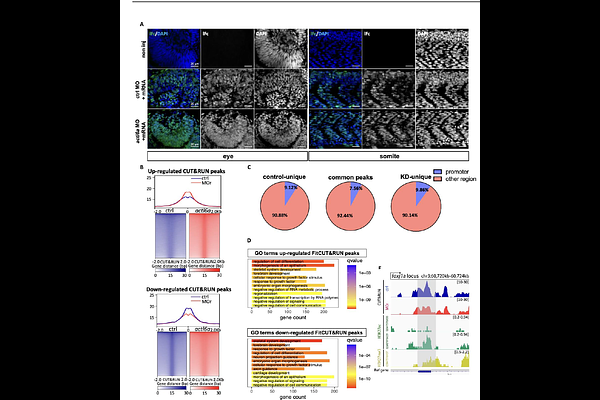Epigenetic regulation of cilia stability and kidney by the chromatin remodeling SWI/SNF complexes

Epigenetic regulation of cilia stability and kidney by the chromatin remodeling SWI/SNF complexes
Cheng, X.; Zhu, Q.; Ma, S.; Peng, X.; Huang, G.; Liu, g.; Zhang, W.; Zhang, Y.; Jiang, C.; Qiu, A.; Cao, Y.
AbstractCilia are important subcellular organelles, whose assembly are regulated by master regulator transcription factors including Foxj1 and Rfx proteins. However, whether and how cilia are regulated at epigenetic level remains unknown. We addressed this question by knocking down or knocking out of chromatin remodeling genes. Notably, depletion of multiple components of the switch/sucrose non-fermentable (SWI/SNF) complexes led to ciliopathy-like phenotypes in zebrafish embryos. Specifically, loss of Actl6a, an essential components of the SWI/SNF complexes, resulted in cilia disassembly and cystic kidney, without affectting cilia motility. Omics analyses revealed that in Actl6a-depleted pronephros or embryos, a set of cilia genes-including master regulators foxj1a and rfx2-were downregulated at transcriptional level, chromatin accessibility level and SWI/SNF binding level. Depletion of foxj1a or rfx2 in zebrafish also caused cilia disassembly and cystic kidney. Furthermore, overexpression of foxj1a or rfx2 mRNA partially rescued the cystic kidney and cilia disassembly phenotypes in actl6a mutants. Taken together, our study reveals that the SWI/SNF complexes maintain cilia stability and kidney homeostasis by directly modulating the expression of foxj1a or rfx2.